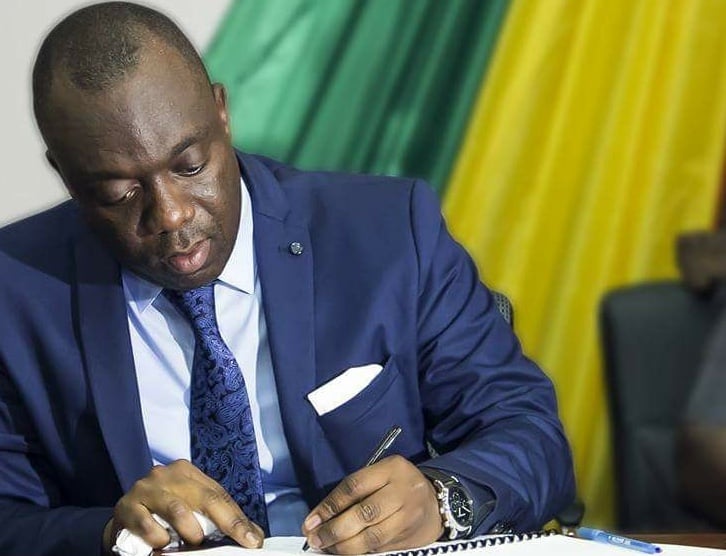The aftermath of the New Patriotic Party’s (NPP) defeat in the 2024 Ghanaian elections has sparked internal debate and calls for accountability, with General Secretary Justin Kodua finding himself at the center of the storm. In a revealing interview on Kessben FM, Kodua addressed the brewing tensions, hinting at potential scapegoating and asserting his readiness to defend his actions. He pointedly stated he was aware of certain party members preparing to blame him for the electoral loss and vowed to respond to their accusations. Kodua’s interview offered a rare glimpse into the internal workings of the NPP, highlighting the complex decision-making processes that unfolded in the lead-up to the crucial election.
Central to Kodua’s argument was the timing of the NPP’s presidential candidate selection. He argued that the six-month gap between the National Democratic Congress (NDC)’s nomination of John Mahama in May 2023 and the NPP’s own selection in November 2023 handed a significant advantage to their opponents. This delay, he contended, allowed the NDC to establish a stronger foothold in the political landscape and connect with the electorate earlier in the campaign cycle. Kodua emphasized that elections are not isolated events but rather culminations of a series of strategic decisions and actions taken long before voters cast their ballots. The delayed nomination, in his view, hampered the NPP’s ability to effectively compete.
Kodua further revealed that the decision to delay the candidate selection was not unanimous within the party. He disclosed that some Members of Parliament (MPs) advocated for an earlier nomination, ideally around July, to provide ample time for campaigning and voter engagement. This proposal, however, met with resistance from within the party, particularly from the government, due to concerns about potential instability. The fear was that MPs who failed to secure re-nomination might abandon their parliamentary duties, disrupting the government’s operations. This internal disagreement ultimately contributed to the delayed nomination process, which Kodua believes played a significant role in the NPP’s electoral defeat.
Elaborating on the internal deliberations, Kodua outlined the various stages of the decision-making process. A committee was formed to address the issue of candidate selection timing, and they initially reached a consensus to propose August as the nomination month. However, this recommendation was overturned at the National Council level, where a November nomination was put forward and subsequently approved through a vote. This shift in timeline further solidified the delayed nomination, exacerbating the challenges faced by the NPP in the lead-up to the election.
Kodua’s willingness to address the internal dissent and potential blame-shifting reflects the deep divisions within the NPP following the electoral setback. His pointed remarks about specific party members targeting him suggest a level of internal conflict that could further complicate the party’s efforts to regroup and strategize for future elections. The public airing of these internal disagreements underscores the challenges facing the NPP as it navigates the aftermath of its defeat and seeks to regain its footing in the Ghanaian political landscape.
The fallout from the 2024 elections presents a critical juncture for the NPP. The internal debates surrounding the timing of candidate selection, the concerns about government stability, and the now-public accusations of blame all point to deeper structural and strategic issues within the party. How the NPP addresses these internal challenges, manages the fallout from the election, and charts a course forward will significantly impact its future prospects. Kodua’s forthright statements, while potentially exacerbating internal tensions in the short term, may also serve as a catalyst for much-needed introspection and reform within the party. The NPP’s ability to unify and address these fundamental issues will determine its capacity to effectively compete in future elections and regain the trust of the electorate.


